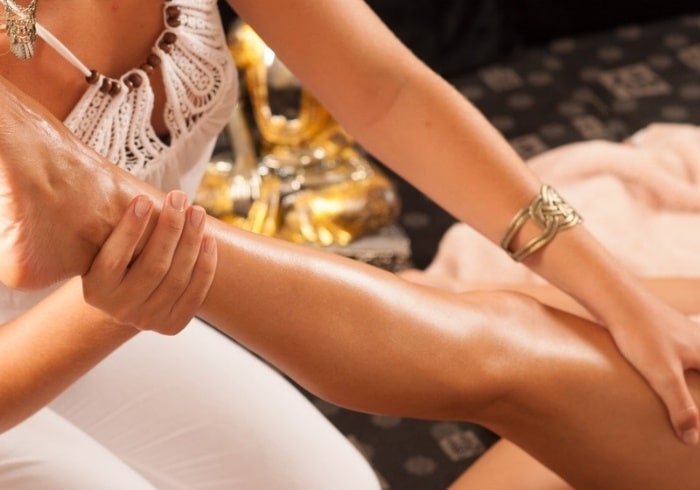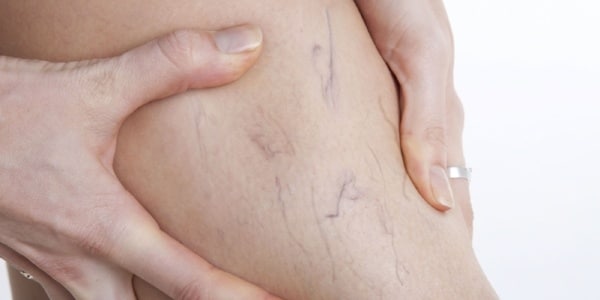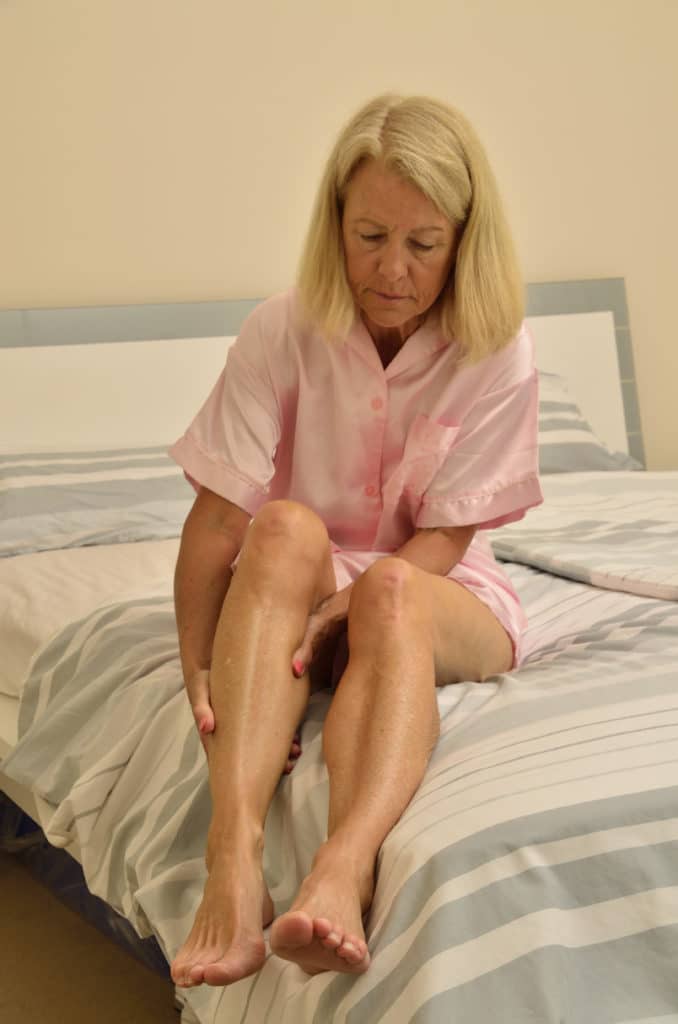
Vaginal Varicose Veins – Is that even a thing?
If you have even heard of vulvar varicosities, chances are it is because you have experienced them. And it is likely you had to work ridiculously hard to uncover any information about the topic. Varicose veins of the vulva and perineum just don’t get a whole lot of press. Commonly quoted estimates state that about 10 percent of women will experience vulvar varicosities during pregnancy, but it is possible that number is higher because some women just won’t talk about it.
And if you look at the rare online discussion about vaginal varicose veins, like JustMommies.com you will see that women who experience the symptoms of vulvar varicosities are completely surprised when it happens—because they had no idea such a thing could even happen.
Let’s change that!
Let’s get women the information they need to live more comfortable, more present lives. Let’s start talking about it. Let’s take it from being a thing to just being, you know, a thing. If we need to, let’s talk to our sisters, our girlfriends, our wives, our mothers. And, if you have any questions about this or any other vein issue, another great person to talk to is a qualified vein specialist.
Vulvar varicosities: But Why?!
Basically, it is possible to develop a varicosity in any part of the body. But there are a few reasons why your vulvar area can be susceptible.
- Gravity. Baby and placenta put a lot of pressure on the pelvic region, and this creates back pressure on the veins in the pelvic floor.
- Hormones. The pregnancy hormones that are circulating to prepare your pelvis for birth also make your veins—all of your veins—prone to distension. Estrogen, progesterone and relaxing all play a part.
- Mechanics. The venous valves that are designed to provide some protection against pooling of blood in lower regions occur less frequently the closer the vein is to the heart. In a small percentage of women, there are no venous valves in the vulvar area.
Some Good News About Vaginal Varicose Veins (and a Little Bad News-but Mostly Good)
Let’s start with the good...
- Good news—they are transient. Chances are good that they will go away once baby is born.
- Bad news—they are transient. If you get them once, vulvar varicosities will come back—and likely sooner—with each subsequent pregnancy. As well, with each pregnancy, there is an increasing chance that they will stay, even after the baby is born.
- Bad news—they could be a sign of more ominous things. It is possible that vulvar varicosities are a sign that you have developed, or are developing, Chronic Venous Insufficiency (CVI), especially if they appear with varicose veins in your legs. A qualified vein specialist can look at your veins and tell you if this is the case for you.
Here's the Really Good News
The really good news, though, is that if varicosities do appear during pregnancy, and don’t go away once baby is born, there are vulvar varicosity treatments available that can get you back to feeling like your old self with minimal fuss. A qualified vein specialist like Dr. Jilanne Rose from Advanced Vein Institute of Arizona (AVIA) will be happy to talk to you about your options. However, as she wants you to have the most successful experience possible, she will caution you about the timing of treatments.
“One thing to keep in mind is that if you are currently or recently pregnant, you will have to wait a bit before a vein specialist can treat you,” Dr. Rose says. “Birth will relieve much of the pressure on the area. However, your body will need some time—at least a few months—for hormone levels to return to normal and for your body to re-adjust. In the end, you might not even need treatment.”
While you wait, Jilanne has a few suggestions you can try to find some temporary relief from the symptoms of vulvar varicosities.
More good news: it is really easy to talk to Jilanne. Call the office or fill out this form if you would like to get a conversation started about whether vein treatment is what you need to get back to living more comfortably.
You were concerned that your varicose veins might be a symptom of chronic venous insufficiency or other blood circulation problems beneath the surface, so you consulted your qualified vein specialist. Together, you decided on your best varicose vein treatment, and you are committed to doing all that has been prescribed for your aftercare. What you…
Read MoreHere is the thing: you could have varicose veins and not even realize it. While we associate the term varicose veins with the really obvious blue and twisty bulges that make our legs look like road maps, this is not always the case. Varicose veins occur when the valves in the veins—designed to prevent the…
Read MoreUsted podría estar pensando que sus varices son sólo un problema cosmético, pero podrían ser una señal de que su salud vascular está comprometido. Si ese es el caso, y si usted está sufriendo de insuficiencia venosa (CVI), es casi seguro que su proveedor de beneficios de salud cubrirá la mayoría si no todos los…
Read MoreYou might be thinking that your varicose veins are just a cosmetic issue, but they could be a sign that your vascular health is compromised. If that is the case, and if you are suffering from venous insufficiency (CVI), it is almost certain that your health benefits provider will cover most if not all of the…
Read MoreDoes massage help varicose veins? You might be thinking that massage is a great way to deal with the ache and pain of varicose veins. It seems like it would make sense. Massage therapy is great for improving muscle tone, blood circulation, general relaxation, and overall tissue health. All of these things are important for…
Read MoreThere are a lot of myths and misconceptions when it comes to spider veins. So we asked Jilanne Rose, DPN, ANP-C, a top Metro Phoenix Vein Specialist, to dispel some of the more frequent misconceptions surrounding the cause, risk factors, and treatment of this common vein condition. Myth #1: Spider Veins are Only Cosmetic Many people…
Read MoreJilanne Rose, ANP-C, and Clinical Director at the Advanced Vein Institute of Arizona has been asked to speak at the “Your Health Matters” Seminar on Thursday, January 26th at 10am. The seminar is being hosted by Generations Senior Living in Gilbert Arizona.
Read MoreIf you think that your varicose veins hurt more at night, you are probably not imagining this. The reason why, in a word, is contrast. This might make more sense once it is explained… Especially since the advent of electrical lights, it can be easy to forget that nighttime is for rest. As daylight…
Read MoreAs a smart consumer and advocate for your own health, you have likely done your research about the variety of varicose vein treatments available, and you have probably noticed that vein procedure success rates are hard to find. Some try. There are statistics tucked into difficult-to-read research abstracts and surveys. Some reports contradict others. Others…
Read MoreIf you worry that getting a second opinion on your varicose vein treatment is rude or disrespectful—don’t! Any reputable health professional will tell you that consulting with more than one health specialist is a smart thing to do. Here are a few reasons why that is… Ensuring a proper diagnosis will reduce anxiety…
Read More


